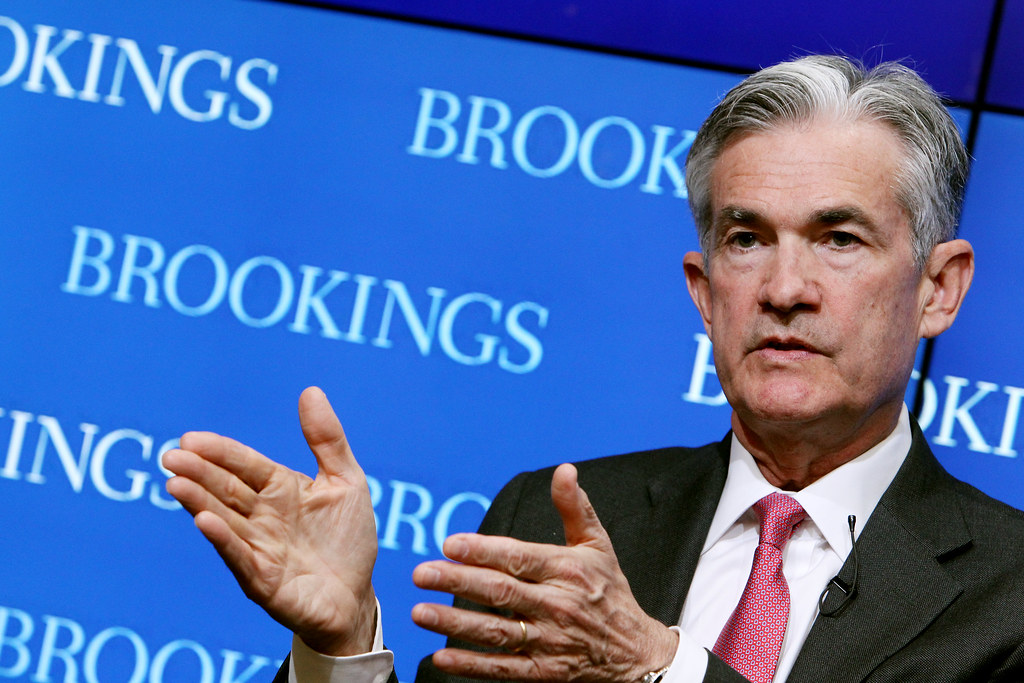Read this article on the original website.
By this fall, President Joe Biden will decide whether to renominate Jerome Powell as chairman of the Federal Reserve, a fact surely on Powell’s mind each day. Every Fed chair craves the nomination of presidents of both parties as a bipartisan imprimatur.
As a creature of Washington, Biden is surely attracted to the symbolism of blessing one of the former guy’s guys. Powell has also made some decisive moves toward easing the Fed’s institutional tendency to over-worry about price stability. When the Fed promised in August to emphasize the full-employment side of its mandate, it at least quashed the institution’s official inflation scaremongering, even if other voices picked up the slack.
But the Fed is more than monetary policy, and we need to think of the Fed chair’s whole role. Since democratic control of the Fed is exercised primarily through presidential appointments, we must consider Powell’s record holistically. It’s not a good one.
If you care about regulating Wall Street, then oppose a Powell renomination.
The Powell Fed has racked up an absolutely miserable record on financial regulation. Powell and Randal Quarles, the vice chair for supervision, presided over the evisceration of the Volcker rule, a measure aimed at ending banks’ risky speculation on their own behalf. Powell and Quarles weakened bank stress tests and capital requirements, and last year, oversaw a backdoor Wall Street bailout in the name of pandemic relief.
This shift has already made the recovery from the pandemic-induced downturn more painful than necessary. It also undermines monetary policy, because it strips the Fed of tools needed to prevent asset bubbles. And if you can’t forestall bubbles, pressure to increase interest rates will rise.
If you care about the climate, then oppose a Powell renomination.
The Powell Fed has been a dragging anchor in Biden’s whole-of-government climate plan. In response to COVID-19, the Fed disproportionately propped up the fossil-fuel industry, and it only joined a network of central banks developing best practices on climate issues—but with no firm commitments on implementation—when Biden finally won the election.
Since then, Powell has continued a go-slow approach to climate-related risk disclosure, a basic first step. Even as the central bank formed two new climate committees, Powell downplayed the chances that either would actually address the problem at hand. Instead, he praised the unproven, voluntary emission targets of Wall Street players, ignoring the industry’s dismal record of self-regulation.
If you care about racial equity, oppose a Powell renomination.
While regional Fed banks have broken some new ground in acknowledging race after the murder of George Floyd, Powell warned Congress off the idea of a simple hearing in which the Fed would report on racial employment and income gaps. Powell is also resisting rising calls for direct Fed assistance in bringing marginalized populations into the banking system.
If you care about ending the revolving door, then oppose Powell renomination.
While Biden has tapped into new communities of scholars and policy makers for his appointees, Powell was a classic establishment pick. But the Fed establishment leaves much to be desired. Powell worked in the Bush administration and at investment banks before landing at The Carlyle Group, the massive Washington-based private-equity firm. In other words, he shares the same biases that Wall Street does. Imagine what kind of Fed we’d have if Biden nominated William Spriggs, the African-American chief economist of the AFL-CIO, or Lisa Cook, a former member of the Council of Economic Advisers, also African-American.
Finally, if you care about good monetary policy…
You have lots of options besides Powell. After a decade of Cassandra-like warnings about inflation, the economic profession at large realized that the American economy doesn’t push up prices like it used to. It was not a massive intellectual or political step in 2020 to conclude that focusing on employment was the way to go. Powell’s policies reflect insights from economists and activists typically far from his own walks of life, and they’re still a long way from what the country needs: a clear commitment to a full-employment policy.
Given Powell’s apparent objections to Biden’s core policy goals why should the president settle for him? Seeking common ground with his predecessor only makes sense if grounded in policy that advances justice and equality. Biden should instead look to his idol, FDR. The current iteration of the Fed was born during the New Deal era, which fundamentally restructured society in ways Biden admires.
To hit that trajectory, Biden doesn’t need to get laws changed. He simply needs to appoint a Fed chair with the right vision.
PHOTO: “Governor Jerome Powell Speaks At Brookings Panel, ‘Are There Structural Issues In U.S. Bond Markets?'” by the Brookings Institution is licensed under CC BY-ND-NC 2.0.

